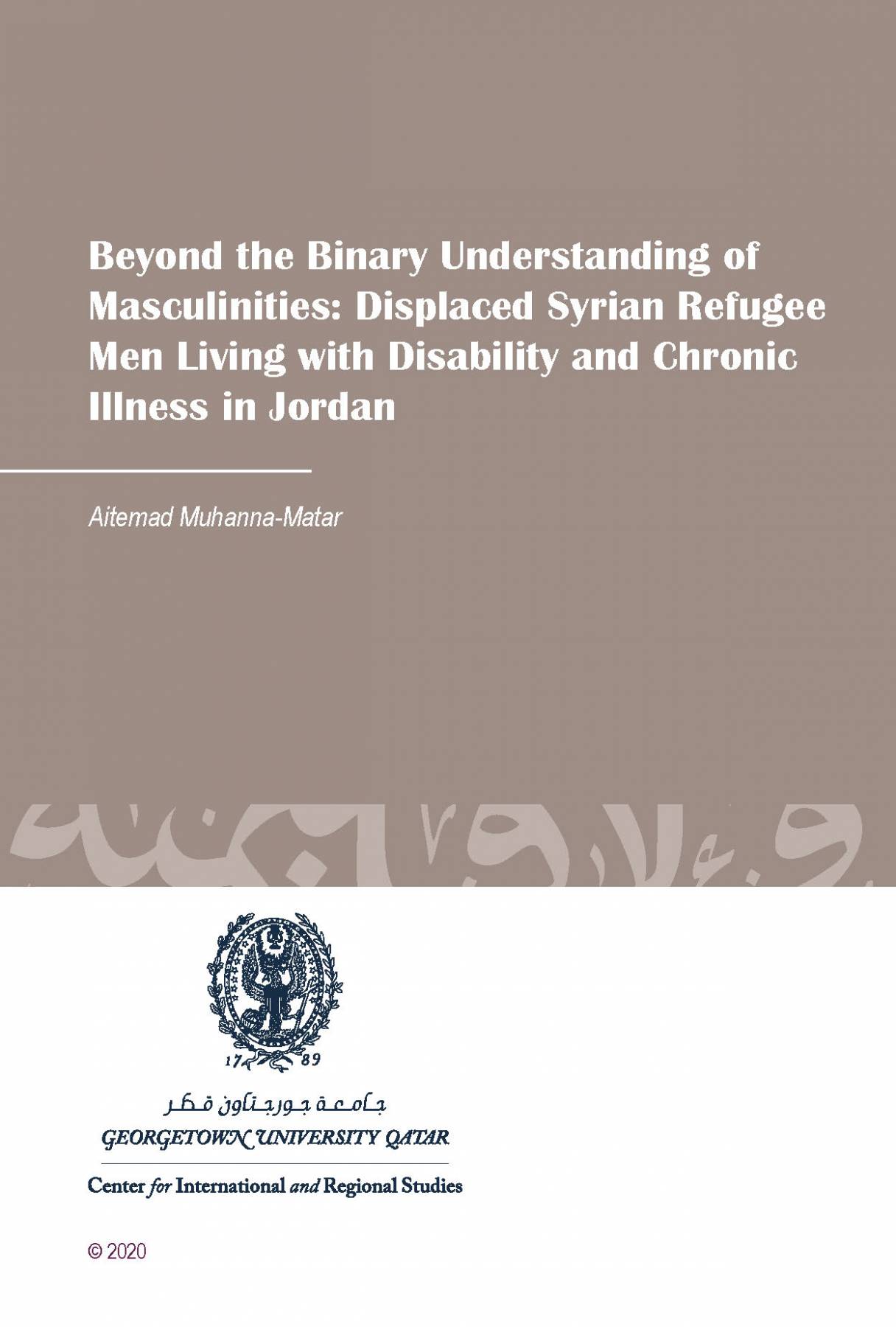Beyond the Binary Understanding of Masculinities: Displaced Syrian Refugee Men Living with Disability and Chronic Illness in Jordan

This article analyzes the dynamics of renegotiating masculinities among displaced Syrian men with disabilities in Jordan. The article draws its analysis on the personal narratives of four Syrian men who have experienced disability and chronic illness caused by the Syrian war. Their personal narratives challenge the binary and singular understanding of masculinities in the literature and the gender discourse used by international humanitarian aid organizations, which tend to associate masculine identity with social embodiment. This discourse also perceives the marginalized and subordinated masculinities as either complicit to hegemonic masculinity with its traits of violence, or emasculated by physical disability. The personal narratives provide evidence that disabled men do not completely disavow the normative image of masculinity through loss of their physical strength. Rather, they shape their unique masculinities by composing diverse elements of masculinities that they experienced throughout their life. Their emerging masculinities alter masculine normative traits of domination and aggression with emotional and moral traits of loving, caring, reciprocity, collective responsibility, democracy, and justice. Yet, the emerging composite masculinities of disabled men are still drawn upon the moral virtues of patriarchy.
To cite this publication: Aitemad Muhanna-Matar, “Beyond the Binary Understanding of Masculinities: Displaced Syrian Refugee Men Living with Disability and Chronic Illness in Jordan,” CIRS Occasional Paper no. 24 (Doha, Qatar: Center for International and Regional Studies, 2020).